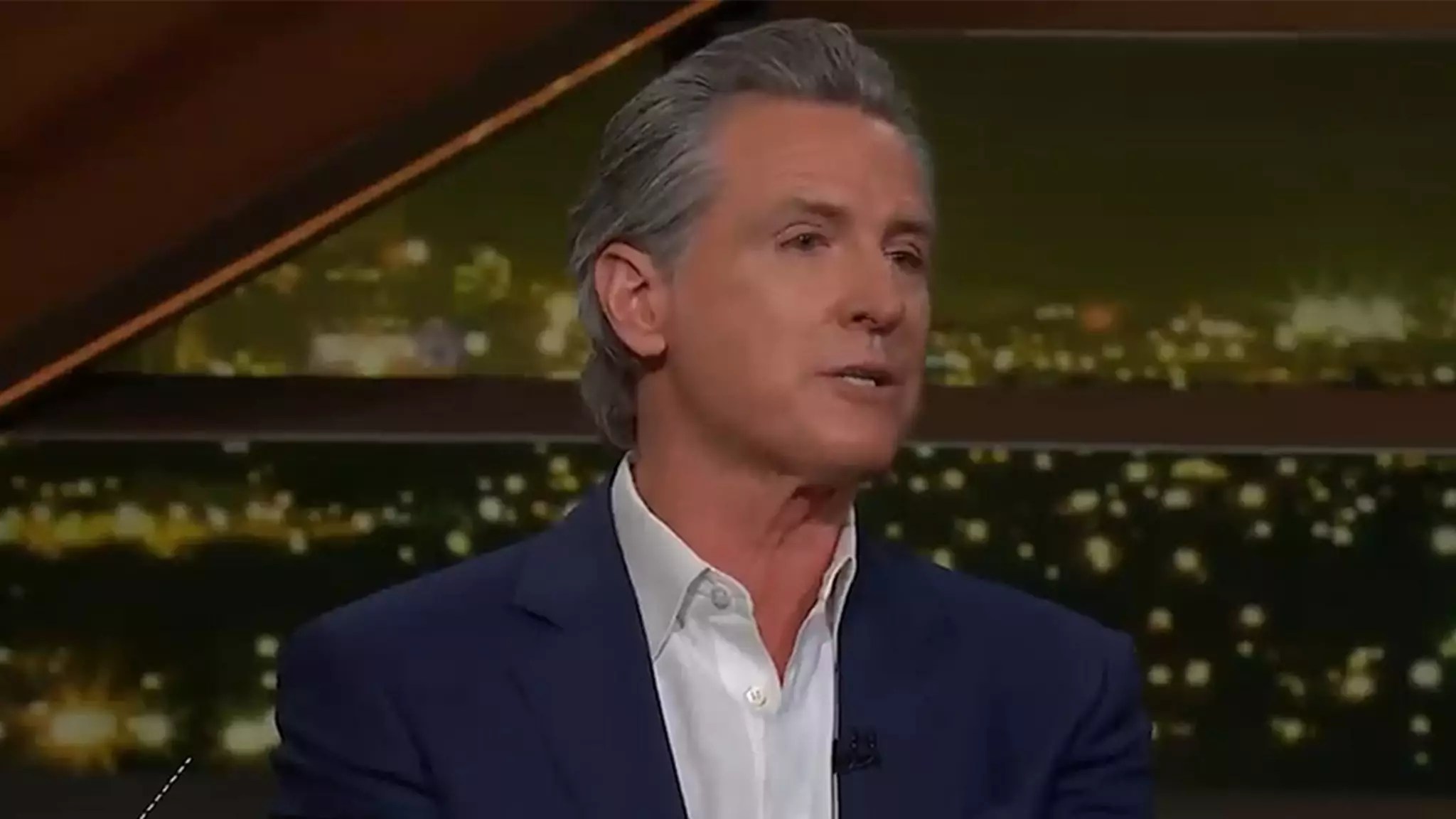In an era where political polarization often dominates the landscape, California Governor Gavin Newsom is taking a courageous approach by extending an olive branch to conservatives. His podcast, “This Is Gavin Newsom,” serves as a platform to engage with figures from the political right, a move that has elicited both support and criticism. During a recent conversation with Bill Maher on ‘Real Time,’ Newsom articulated the pressing need for Democrats to converse with their Republican counterparts as a necessity for electoral progress. This willingness to engage with polarizing figures such as Steve Bannon and Charlie Kirk marks a deliberate strategy to reassess the Democratic approach in a challenging political climate.
The Toxicity of the Democratic Brand
Newsom’s candid acknowledgment that the “Democratic brand is toxic now” carries significant weight. By confronting this uncomfortable truth, he positions himself and his party to adapt and evolve. In the context of dwindling approval ratings and low voter enthusiasm among Democrats, exploring common ground with the GOP might not only be a pragmatic electoral strategy but also a necessary step towards restoring public trust in the party. Newsom’s approach signals a radical departure from traditional party politics that can often devolve into echo chambers rather than forums for constructive dialogue. This could be the refresh that the Democratic Party so desperately needs.
Maher’s Support and Critique of Political Cults
Bill Maher’s endorsement of Newsom’s strategy highlights a mutual understanding that the lack of communication between parties hinders democracy itself. However, Maher also raised alarm about the troubling phenomenon of a “cult-like” following surrounding figures such as Donald Trump, emphasizing that meaningful discourse cannot occur in an environment fueled by blind loyalty and uncritical support. Maher’s poignant critique of GOP politicians who mirror Trump’s style and rhetoric raises the question of authenticity in political leadership. The challenge remains: can both parties engage in self-reflection and genuine discourse without devolving into the caricatures they so often portray?
A Call for Honest Reflection
Both Newsom and Maher assert that introspection is essential not only for Democrats but for Republicans as well. The notion that either party can remain static while the nation evolves is dangerously naive. Engaging with opposition voices — even those with whom one fundamentally disagrees — fosters a healthier, more vibrant democratic process. The risk, however, lies in the potential for backlash from party loyalists who view such dialogues as betrayal. Newsom’s gamble showcases a willingness to endure scrutiny in pursuit of a more inclusive political arena. As discussions become a battlefield of ideas rather than an exchange of insults, the prospects for bipartisan collaboration might transform political landscapes for the better.
Charting a New Political Path
While challenges remain, Newsom’s initiative could serve as a template for future political engagement in an increasingly fragmented society. By opting for conversations over combative rhetoric, he may inspire a movement that values dialogue and mutual respect. The implications of this strategy extend beyond simple electoral gains; they touch upon the very fabric of democratic values. As leaders continue to strategize for the upcoming elections, the ability to navigate uncharted waters of political collaboration may emerge as the cornerstone for real change in the American political narrative.


Leave a Reply